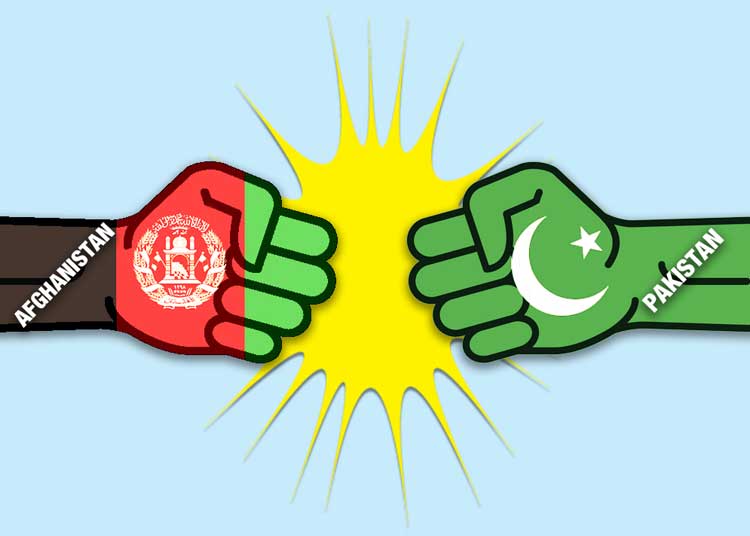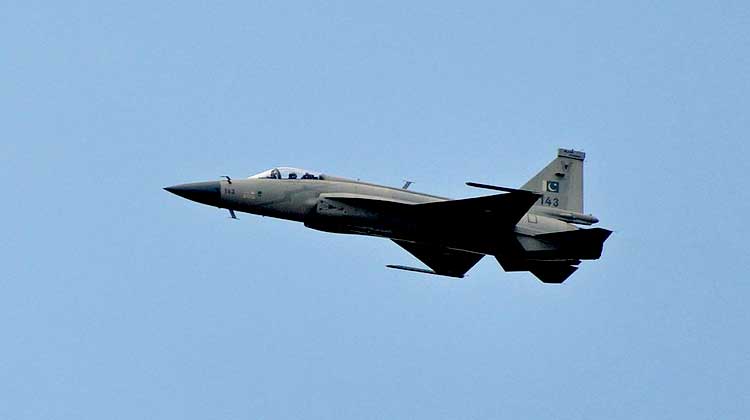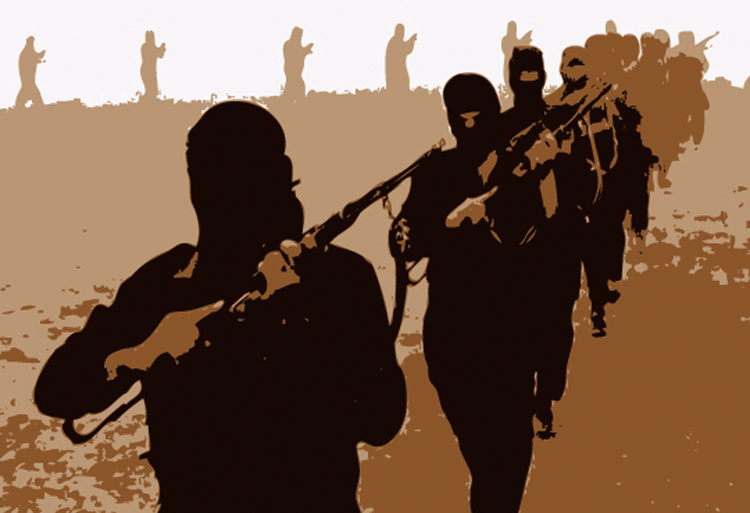INDIAN ARMED FORCES CHIEFS ON OUR RELENTLESS AND FOCUSED PUBLISHING EFFORTS

The insightful articles, inspiring narrations and analytical perspectives presented by the Editorial Team, establish an alluring connect with the reader. My compliments and best wishes to SP Guide Publications.

"Over the past 60 years, the growth of SP Guide Publications has mirrored the rising stature of Indian Navy. Its well-researched and informative magazines on Defence and Aerospace sector have served to shape an educated opinion of our military personnel, policy makers and the public alike. I wish SP's Publication team continued success, fair winds and following seas in all future endeavour!"

Since, its inception in 1964, SP Guide Publications has consistently demonstrated commitment to high-quality journalism in the aerospace and defence sectors, earning a well-deserved reputation as Asia's largest media house in this domain. I wish SP Guide Publications continued success in its pursuit of excellence.
- Operation Sindoor: Resolute yet Restrained
- India’s Operation Sindoor Sends a Clear Message to Terror and the World – ‘ZERO TOLERANCE’
- Japan and India set forth a defence cooperation consultancy framework, talks on tank and jet engines
- Terrorist Attack in Pahalgam in Kashmir: Unfolding a long surgical war against PAK
- Lt General Pratik Sharma takes over Command of Indian Army's Northern Command
Pakistan Support to Taliban Backfires
Tehrik-e-Taliban Pakistan, a militant group also known as the Pakistani Taliban or the TTP has launched more than 124 terrorist attacks since the Taliban returned to power in Pakistan (including suicide attacks) from bases in Afghanistan
 |
The Author is Former Chief of Staff (COS), Central Command, Indian Army. He is an expert on Siachen and Ladakh with experience in counter insurgency operations in J&K and North East and is also an expert on Information Warfare. |

Pakistan, notwithstanding who was in power, always believed that an Afghanistan ruled by the Taliban would be a boon to Pakistan's security. The deep state continued to support the Taliban with the understanding that the militants could help deny India — which most Pakistani officials see as an existential threat — any influence in Afghanistan. But since sweeping back to power last August, the Taliban have confirmed how misguided the conventional wisdom truly was. The situation for Pakistan has become even more dangerous after the Taliban's victorious march into Kabul.
The success of the Taliban in Afghanistan has galvanised the Tehrik-e-Taliban Pakistan, a militant group also known as the Pakistani Taliban or the TTP. This group has launched more than 124 terrorist attacks since the Taliban returned to power in Pakistan (including suicide attacks) from bases in Afghanistan. The TTP's activity has led to tensions between Islamabad and the Taliban in Kabul. Retaliatory air strikes by the Pakistan Air Force have provoked protests from the Taliban authorities. Taliban border security guards have challenged Pakistani efforts to fence the Pakistan-Afghanistan border. A senior Pakistani General, who until recently headed Pakistan's Inter-Services Intelligence (ISI), had to visit Kabul for talks with the TTP, facilitated by the Afghan Taliban.
Pakistan provided a safe haven for Afghan Taliban insurgents and allowed the Taliban leadership to operate out of Pakistan for the last two decades
Not for the first time, Pakistan's support for the Taliban has come back to bite it. Though itself reeling in economic crisis, Islamabad's efforts to secure international recognition and economic assistance for the Taliban regime have failed miserably. The international community has made it clear that it would not rush to recognise the Taliban unless they change. The Taliban, on the other hand, have refused to relinquish their hard-line stance on many issues including women's rights and allowing girls into school. Under Taliban rule, Afghanistan is a pariah state. A new Pakistani government now faces the prospect of having to prop up a troublesome ally in Kabul and a cash-starved populace next door at a time when its own economy is struggling. Years of Pakistani backing have helped the Taliban return to power but have not, in any appreciable way, helped Pakistan.
Pakistan's support for the Taliban has always been rooted in ideology rather than in real politik. Since its creation in 1947, Pakistan has based its security policies on the notion that India, its foe since inception, besides the vexed issue of Kashmir between the two, seeks its dissolution. They have also long been wary of Afghanistan to the northwest. Kabul has traditionally refused to accept the border between Afghanistan and Pakistan, a colonial-era artifact from 1896. As far back as the 1940s, Afghan leaders demanded the creation of "Pashtunistan," uniting Pashtun territories on both sides of the border. Both Hamid Karzai and Ashraf Ghani, the Afghan Presidents who ruled the country between the fall of the Taliban in 2001 and their return 20 years later, spoke of maintaining good relations with Pakistan but did not change Kabul's position on Pashtun unity.

Suspicious of both its neighbours, Pakistan feared an alliance between India and Afghanistan. Such an alliance would leave it trapped between two rivals. Pakistan assumed a major role in Afghanistan in the 1980s, when it supported the United States' proxy war against the Soviet Union, not out of fealty to Washington but to pursue its own strategic ambitions; Pakistan had hoped to extend its influence into Afghanistan long before Soviet troops invaded the country in 1979. Islamabad deemed Islamist groups the most effective instrument for spreading its influence, a policy that culminated in the rise of the Taliban in the 1990s.
The U.S. invasion of Afghanistan in 2001 reinforced secular and Pashtun nationalist elements of Afghan society, whom Pakistani leaders saw as being close to India or, worse, outright proxies for India. Pakistani Islamists supported the Taliban, many of whom were educated in Pakistani seminaries (madrassas), because of their shared belief system. But Pakistan's military saw the Taliban insurgency as insurance against an India-Afghan entente under secular Afghan leaders. Notwithstanding Islamabad's formal denials, Pakistan provided a safe haven for Afghan Taliban insurgents and allowed the Taliban leadership to operate out of Pakistan for the last two decades.
The Taliban and the Haqqani network, a strong faction within the militant group, may have accepted Pakistani support for years but do not wish to be Pakistani proxies forever
Pakistan, described its relationship with the Taliban as a hedging strategy to deal with the consequences of an inevitable U.S. withdrawal. It did not expect a U.S. military withdrawal from Afghanistan to mark the end of Washington's interest in the region. It hoped to emerge as a key lynchpin in the region as both the pre-eminent foreign power in Afghanistan and the main intermediary between the Taliban and the United States and its allies.
During the disastrous US withdrawal from Afghanistan, Pakistani officials remained optimistic about maintaining influence over the Taliban while retaining close ties with the United States. This was a huge miscalculation. Influence moves both ways. Pakistan's powerful intelligence agency, the Inter-Services Intelligence, holds sway over the Taliban through material support and personal ties with the leadership. But the Taliban have gained powerful constituencies within Pakistan, such as conservative clerics and Islamist political parties. The Taliban and the Haqqani network, a strong faction within the militant group, may have accepted Pakistani support for years but do not wish to be Pakistani proxies forever.

Ideologues within the Afghan Taliban are unwilling to break ties with the TTP, who are responsible for some of the worst terrorist attacks inside Pakistan since 2007 including claiming responsibility for an attack on an army school in Peshawar that killed 145 people, mainly school children, in 2014. Pakistan's military has fought the TTP in the areas bordering Afghanistan and has complained in the past that Pakistani Taliban commanders have found shelter inside Afghanistan.
After the Taliban's victory in Afghanistan, Pakistan expected the Afghan Taliban to broker a cease-fire between their Pakistani counterparts and the Pakistani government. But that failed, and Pakistan has conducted several drone raids and air strikes against TTP targets in Afghanistan.
For any meaningful change, Pakistan must revise its approach to the Taliban. Successive Pakistani leaders who supported the Taliban in the hope of making Pakistan more secure clearly misunderstood the real challenges facing their country.
Whatever the case, this violence has dashed Pakistani hopes that a Taliban government would lead to a secure western border. In Pakistan's south-western Balochistan Province, which borders Afghanistan, secular Baloch nationalist insurgents have also gained ground instead of being uprooted by the Taliban. For years, Pakistan blamed the republican government of Afghanistan (and its Indian backers) for helping the Baloch separatists, including by letting them find shelter in Afghanistan. But since the fall of that government and the evaporation of Indian influence in Afghanistan, the Baloch groups seem to have only gained in strength, launching some of their most deadly attacks and even targeting the infrastructure projects of Pakistan's close ally, China.
A new civilian government, which came in to power in Pakistan in April after the ouster of Imran Khan, replaced by Shehbaz Sharif, heads an uneasy coalition of rival parties that banded together to unseat him. But even this government is unlikely to change Pakistan's policy toward Afghanistan, which remains the purview of the military and the ISI.
Pakistan's military leadership has shown little inclination to shed its India-centered worldview, which in turn binds it to maintaining its close ties with the Taliban in Afghanistan. The new government in Pakistan could pressure the Taliban militarily and economically, demanding that they share power with other Afghan factions and reverse some of their most extreme policies. But Pakistan's generals are unlikely to embrace that option and risk losing a partner in their imagined strategic tussle with India.
For any meaningful change, Pakistan must revise its approach to the Taliban. Successive Pakistani leaders who supported the Taliban in the hope of making Pakistan more secure clearly misunderstood the real challenges facing their country. Their avowed fears about Pakistan's security—even after the country developed nuclear weapons in the 1990s—can be better explained by psychology or the imperatives of politics than any reasonable assessment of reality. For decades, Pakistan's Afghanistan policy has stoked pan-Islamism, jihadism, and paranoia about India. That toxic brew has prevented Pakistani leaders from treating India and Afghanistan as trading partners, instead transforming Pakistan's neighbours respectively into a permanent enemy and a strategic threat. Helping the Taliban win has only added to Pakistan's problems, not solved any of them.





